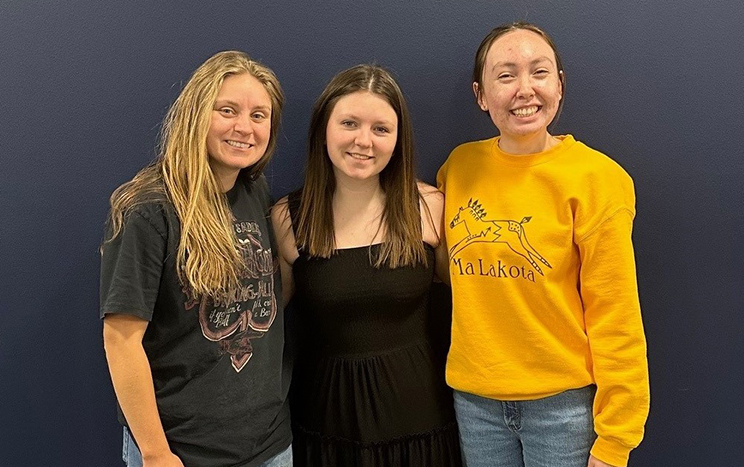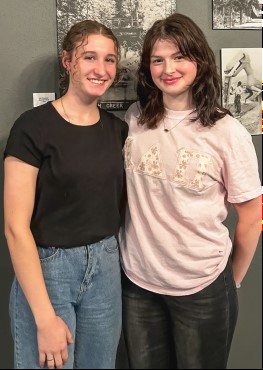South Dakota Mines Students Help Collect Data for Missouri River Pipeline Study

A group of South Dakota Mines students spent several months collecting and analyzing data from hundreds of smaller water systems that will eventually connect to an extensive pipeline supplying water to most of western South Dakota.
The students worked with the team at Western Dakota Regional Water Systems (WDRWS), a nonprofit organization formed in 2021 to plan, construct and manage the delivery of Missouri River water to communities, tribes and other rural water systems throughout West River.
“This project is looking at the Missouri River water and making sure everybody has quality, abundant water no matter where they live in western South Dakota,” said Cheryl Chapman, Ph.D., WDRWS executive director.
The research opportunity was funded through Elevate Rapid City thanks to funding from Midwest Big Data Hub, a network of people from academia, industry, government and nonprofits focused on using data-driven approaches to address challenges facing science and society.
Taylor Davis, Elevate Rapid City's senior workforce development and partnerships director, said the project-based learning experiences were open to students at higher-education institutions throughout Western South Dakota and across multiple disciplines.
“Among the six students, we had three different majors. That really provides a unique perspective,” Davis said. “These are real-world issues that these students are working on. They can apply what they learn in a classroom setting to practical application.”
The project involved research into the current water systems available throughout western South Dakota, said Annika Schooler, a civil and environmental engineering graduate student who worked on the WDRWS project. “We looked at how many systems there were, then ways in which these individual water systems could be combined into one greater system to conserve water and cost,” she said.
Schooler, Ashley Walker, atmospheric and environmental sciences major, Ava Knutson
and Molly Comfort, both studying civil engineering, and Piper Kocina, geology major, worked closely
with Chapman, Corey Chorne, an engineer with AE2S and program manager for the WDRWS
engineering team, Mark Meyer, director of water for the state Department of Agriculture
and Natural Resources, and Jennifer Sietsema, executive director for Black Hills Council
for Local Governments.
both studying civil engineering, and Piper Kocina, geology major, worked closely
with Chapman, Corey Chorne, an engineer with AE2S and program manager for the WDRWS
engineering team, Mark Meyer, director of water for the state Department of Agriculture
and Natural Resources, and Jennifer Sietsema, executive director for Black Hills Council
for Local Governments.
“Our goal with this grant is a multidisciplinary approach to complex community problems,” Chapman said. “Part of what they have been involved with is understanding the governance structure we have for water at the state and local levels and then collecting and working with the data to understand what challenges exist.”
With the engineering team focusing on the larger water systems, the students broadened the project scope by researching the area's smaller systems, Chorne said.
The next step is to pull the data and chemistries of the different water sources and make sure everything is compatible. “We need to do our due diligence to make sure the waters will behave together, and if they don’t then we will have to look at the treatment methods,” Chorne said.
Mines students have been invaluable to WDRWS, and the goal is to have them continue working on the large-scale water project even after graduation, Chorne said. “We are grateful to this local resource available to us so we can start building our team locally to work on this long term.”
Schooler said it was interesting to work on such an extensive project and understand all the background needed for the plan to move forward. “This was a great opportunity to meet and learn from some great professionals, learn about the water systems throughout western South Dakota and figure out how we could solve problems in conserving water.”
Mines faculty and students have been involved with the Missouri River water study since 2017, when the West Dakota Water Development District commissioned a study with the university on the value of renewing its future use water permit. In 2019, Mines recommended renewal and further analysis on bringing the Missouri River water to western South Dakota.